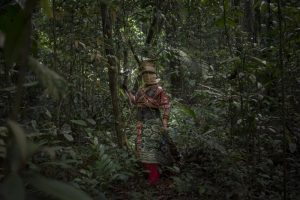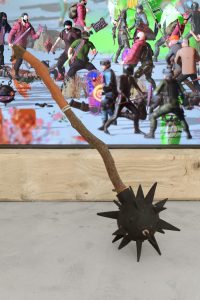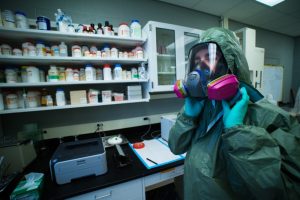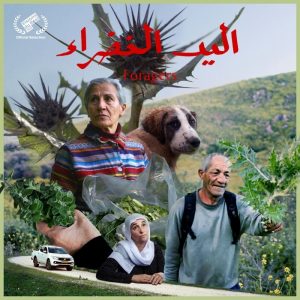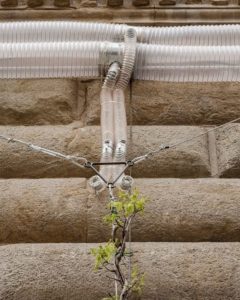As i wrote yesterday, i’ve just spent a day in Florence to see Green Platform – Art, Ecology, Sustainability at the Strozzina center. It is a good show, more coherent than Greenwashing and much darker than Radical Nature. Proper review should land on your screen shortly but i felt compelled to dedicate a post to a project i found particularly striking.
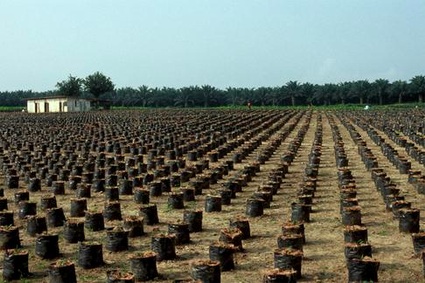 Michele Dantini, The World Bank, 2009. Courtesy the artist
Michele Dantini, The World Bank, 2009. Courtesy the artist
In the Winter of 2001/02, Michele Dantini traveled to Cameroon to photograph and document what is still the biggest private sector investment in sub-Sahara Africa: the construction of the controversial Chad-Cameroon oil pipeline.
The World Bank takes the name of the international financial institution that made the construction possible. It’s indeed the World Bank that teamed up with ExxonMobil, ChevronTexaco and Petronas of Malaysia and allocated 4.2 billion dollars to the ambitious project. Concerned by the potential risks to human rights and the environment, international NGOs and local communities voiced their opposition right from the start. The consortium attempted to calm down the accusations by forcing the governments of Chad and Cameroon to sign a strict guarantee protocol destining oil revenue for health, education and agriculture.
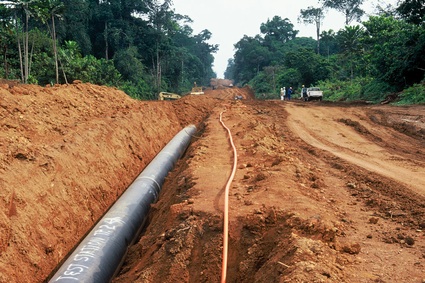 Michele Dantini, The World Bank, 2009. Courtesy the artist
Michele Dantini, The World Bank, 2009. Courtesy the artist
It soon became clear that the petroleum exploitation did not manage to balance juicy profits with ecological and social principles. The pipeline required the cutting through the primary forest of south-eastern Cameroon for some 1000 kilometres in order to reach the export-loading terminal on the Atlantic coast and the drilling of 300 oil wells in Doba, south of Chad. The region affected by the project is a richly biodiverse area and home to the forest-dependent Bakola and Bagyeli people. 150 families were singled out for resettlement, many village lands were expropriated, crops and plants destroyed and water sources polluted. The upgrading of existing seasonal roads has facilitated logging and illegal poaching in otherwise inaccessible areas. Besides, the arrival of largely male job seekers in the area has led to serious social disruption of the communities, with prostitution, alcohol abuse, and STD all on the rise. The compensation plan crafted by the World Bank was very limited in scope and inadequate to restore or improve on broken livelihoods.
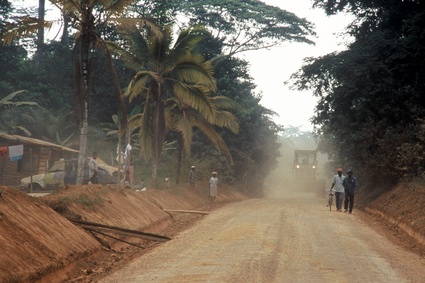 Michele Dantini, The World Bank, 2009. Courtesy the artist
Michele Dantini, The World Bank, 2009. Courtesy the artist
The pipeline commenced operation in autumn 2003. Less than five years later a statement from the World Bank announced that it was ceasing to support the project because Chad’s government had repeatedly violated the terms of the agreement by using oil revenue to purchase arms and recruit French troops.
In retrospect, Dantini considers his project a sort of “test” that verifies the skills and socio-environmental responsibility of the managers of the largest Western financial institution, the ideologists of a single model of “development” that has all too often shown itself to be inadequate, unsustainable and even harmful.
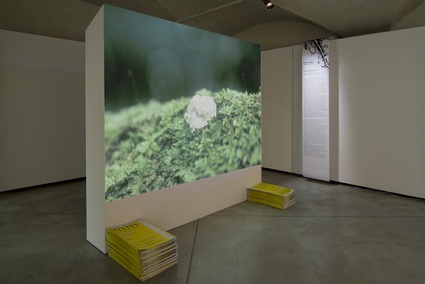 The World Bank, 2009. Photo Credit: CCCS, Firenze; Valentina Muscedra
The World Bank, 2009. Photo Credit: CCCS, Firenze; Valentina Muscedra
The artist created a magazine (bilingual: italian and english) distributed in the gallery and entirely dedicated to the pipeline and its developments. If you can’t go to the Strozzina befor ehte show closes, you can download the PDF of the mag online.
Green Platform runs until July 19, 2009 at Strozzina in Florence.
Related entry: Flotsam Jetsam.

